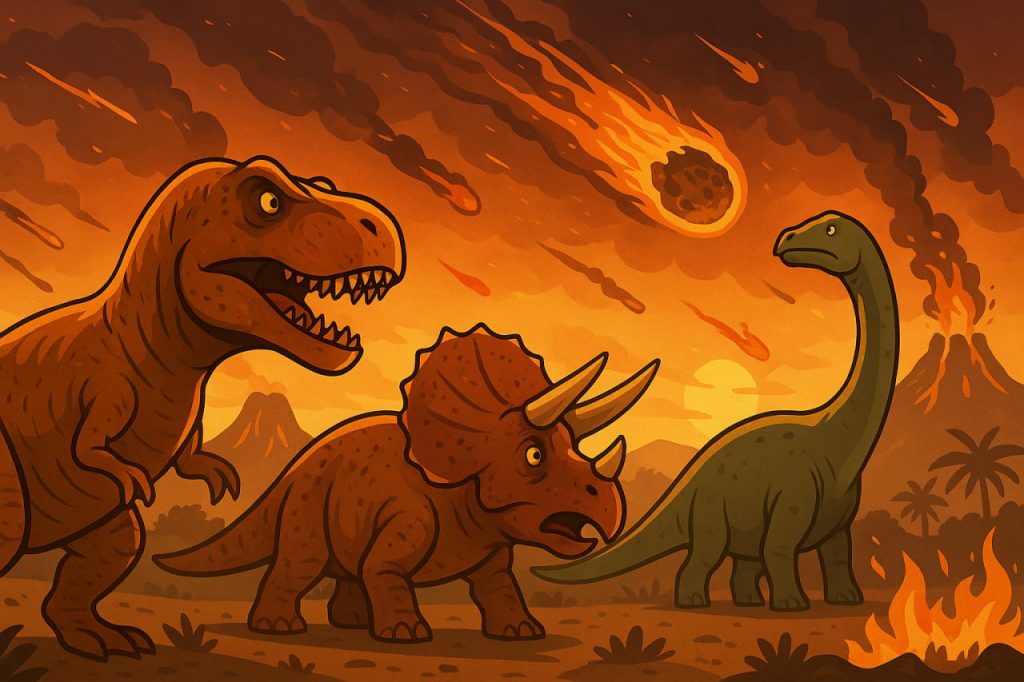Dinosaurs dominated Earth for more than 160 million years, but around 66 million years ago, they suddenly disappeared in one of the most dramatic mass extinctions in history. Scientists believe their extinction was caused by a combination of catastrophic events, with the leading explanation being the impact of a massive asteroid, along with intense volcanic activity and climate change.
The Asteroid Impact Theory
The most widely accepted explanation is that a giant asteroid, about 10–12 kilometers wide, struck Earth near what is now the Yucatán Peninsula in Mexico, forming the Chicxulub crater. The impact released enormous amounts of energy, equivalent to billions of nuclear bombs. Immediate effects included:
- Global wildfires caused by heat radiation.
- A “nuclear winter” effect, as dust and ash blocked sunlight.
- A sudden drop in temperature, disrupting photosynthesis and collapsing food chains.
This event devastated ecosystems and caused the rapid extinction of most large animals, including non-avian dinosaurs.
Volcanic Activity
At the same time, massive volcanic eruptions in the region known as the Deccan Traps (modern-day India) released enormous amounts of lava, ash, and greenhouse gases. These eruptions contributed to:
- Long-term climate instability.
- Acid rain, damaging plants and water systems.
- Increased carbon dioxide, altering global temperatures.
The combination of asteroid impact and volcanic eruptions made survival extremely difficult for large species.
Why Some Animals Survived
Not all life disappeared. Small mammals, birds (the only surviving dinosaurs), reptiles, and some amphibians managed to adapt. Animals that could find shelter, eat a varied diet, or survive harsh conditions had better chances. Over time, mammals diversified and evolved, eventually becoming the dominant land animals.
Other Contributing Factors
- Falling sea levels reduced coastal habitats.
- Food shortages caused by collapsed ecosystems.
- Chain reactions in predator-prey relationships, leading to imbalance.
Conclusion
Dinosaurs went extinct maybe due to a combination of catastrophic events—most notably a massive asteroid impact, powerful volcanic eruptions, and drastic climate changes. These events reshaped Earth’s ecosystems, ending the age of dinosaurs.
Glossary
- Chicxulub crater – the impact site in Mexico linked to the dinosaur extinction.
- Deccan Traps – vast volcanic formations in India created by massive eruptions 66 million years ago.
- Mass extinction – a global event where many species disappear in a short geological time.
- Nuclear winter effect – cooling of Earth’s surface after dust and ash block sunlight.
- Non-avian dinosaurs – dinosaurs that went extinct, excluding the ancestors of modern birds.


